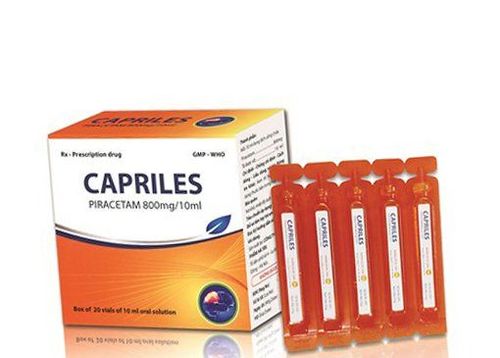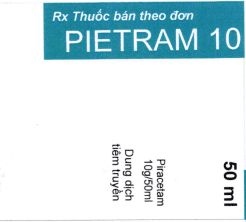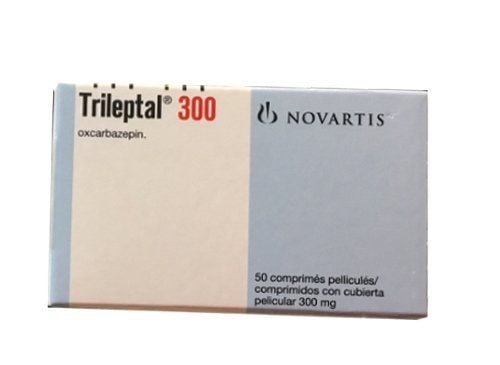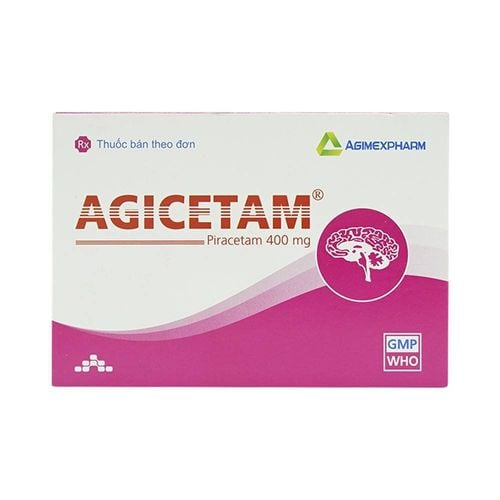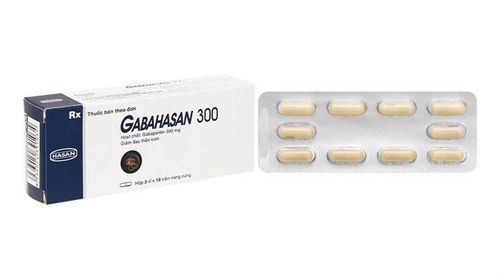This is an automatically translated article.
Depakine is a medicine used in the treatment of epilepsy and other conditions. So what is Depakine and what does Depakine do?
1. What does Depakine do? The drug Depakine has the main ingredient is Valproate sodium which is an anti-epileptic drug, which acts mainly on the central nervous system. Experimental and clinical shows that Depakine has two types of anticonvulsant effects:
The direct effect of Depakine is related to the concentration of valproate in the blood plasma and in the brain. Depakine acts indirectly through metabolites of valproate in the brain by acting on neurotransmitter mediators or directly acting on cell membranes. The most commonly accepted hypothesis today is the hypothesis of GABA (g-amino butyric acid) according to which after taking valproate sodium, there is an increase in the ratio of GABA. Depakine reduces the intermediate stages of sleep with an increase in delayed sleep.
2. Indications and contraindications of Depakine drug Depakine drug is indicated in the following cases:
Generalized or partial seizures. Absence of consciousness (minor episode). Hypertonic tremor (major seizure). Muscle tremors. Loss of tone. Combination. Partial with simple or complex symptoms. Secondary to globalization. Mixed bodies. Febrile convulsions in children. Infants or young children are at high risk and have had at least one seizure. Tics in children. Contraindications of Depakine include:
Acute hepatitis . Chronic hepatitis. Family history of severe hepatitis, especially drug-induced hepatitis. Hypersensitivity to valproate sodium. Porphyria.
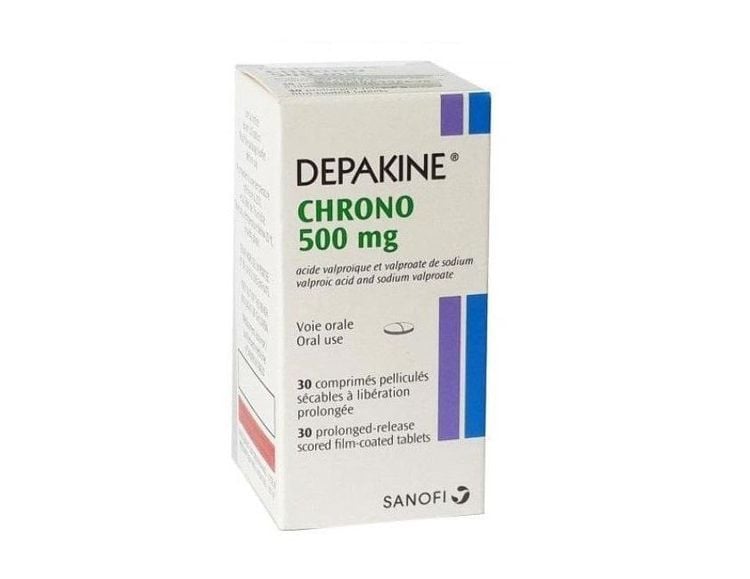
Thuốc Depakine có thành phần chính là Valproate sodium là thuốc chống động kinh
3. Depakine drug interactions with other drugs Effects of Depakine on other drugs:
Neuroleptics, MAO inhibitors, antidepressants: Depakine increases the effectiveness of these drugs, by Therefore, the dose of these drugs must be reduced when used together. Phenobarbital: Depakine increases phenobarbital levels. Clinical monitoring is required during the first 15 days of the combination of these two drugs, and the dose of phenobarbital is reduced in the presence of sedation. Primidone: Depakine increases the concentration of primidone and increases the side effects of this drug, requiring clinical monitoring and dose adjustment as necessary. Phenytoin: Depakine increases plasma concentrations of total phenytoin and free phenytoin. Lamotrigine: Depakine reduces the metabolism of lamotrigine, so it is necessary to adjust the dose when these two drugs are used together. Effect of other drugs on Depakine:
Phenobarbital, carbamazepine, phenytoin reduce the concentration of valproate, so the dose of Depakine must be reduced according to the plasma concentration when receiving combination therapy. Mefloquine increases the metabolism of Depakine and has an epileptic effect. When Depakine is used in combination with strong protein binding agents such as aspirin, the concentration of free valproate is increased. The concentration of valproate is increased (due to decreased metabolism in the liver) when Depakine is used in combination with erythromycin or cimetidine.
4. Side effects of Depakine Some side effects may occur when using Depakine, that is:
Liver disease Risk of teratogenicity. Pancreatitis . Confusion and convulsions. Some patients have gastrointestinal symptoms at the beginning of treatment such as: Nausea, stomach pain, these symptoms disappear after a few days of treatment without needing to stop the drug. Some side effects are transient and depend on the dose of Depakine such as: Hair loss, thrombocytopenia, tremor of small amplitude, increased blood ammonia but no change in liver biochemical tests. Decreased fibrinogen levels, prolonging bleeding time, often without clinical manifestations. Thrombocytopenia, anemia, leukopenia or all 3 bloodlines. Weight gain, missed periods, or irregular periods.

Bệnh gan là tác dụng phụ có thể xảy ra khi sử dụng thuốc Depakine
5. Dosage of Depakine The daily dose of Depakine varies according to the age and weight of the individual patient. The optimal dose of Depakine is determined based on the clinical response of the patient.
In case of uncontrolled seizures or suspected adverse effects when using Depakine, the measurement of valproic acid in the blood plasma contributes to monitoring, the effective drug concentration in serum is about 40 -100 mg/l (300-700 mmol/l).
When the patient is not already taking another antiepileptic drug, the starting dose of Depakine is a low dose and gradually increased every 2-3 days to reach the maximum dose in 1 week.
When a patient has previously taken another seizure medication, the change in medication should be done gradually. The optimal dose of Depakine will be reached in about 2 weeks, while the old drug will be gradually reduced before stopping completely. Depakine can be used in combination with other antiepileptic drugs when needed.
The starting dose of Depakine is usually 10-15 mg/kg/day and gradually increased to the optimal dose. The optimal dose is usually around 20-30mg/kg/day. However, if seizures cannot be controlled with this dose, the physician may increase the dose to above 50 mg/kg and the patient must be carefully monitored.
For children, the usual dose is 30 mg/kg/day. When using an overdose, there will be symptoms such as: coma from mild to deep, decreased muscle tone, narrowed pupils, decreased reflexes, decreased respiratory control. This case should be taken to the hospital immediately for gastric lavage, osmotic diuresis, cardiovascular and respiratory control; hemodialysis or blood transfusion when severe.
Depakine is a medicine used to treat epilepsy and other conditions. To ensure the effectiveness of treatment, patients need to take the drug exactly as directed by the doctor or pharmacist.
Follow Vinmec International General Hospital website to get more health, nutrition and beauty information to protect the health of yourself and your loved ones in your family.
Please dial HOTLINE for more information or register for an appointment HERE. Download MyVinmec app to make appointments faster and to manage your bookings easily.





